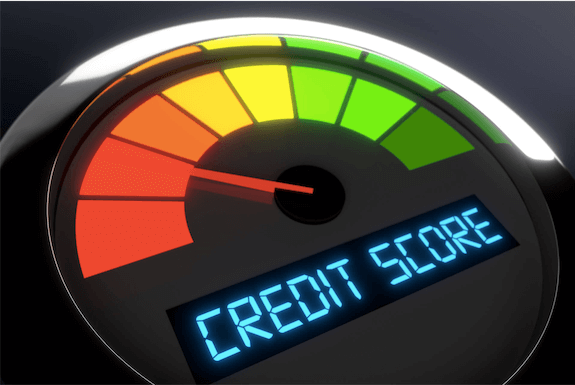A credit score of 580 is considered below average and may present challenges when trying to access credit or financial products. Credit scores play a crucial role in financial decision-making, affecting your ability to secure loans, credit cards and favorable interest rates. In this article, Finger Finance will explore what a credit score of 580 means, its implications and how you can work to improve it.
What Are Credit Scores?
Credit scores are numerical representations of an individual’s creditworthiness. They provide lenders with a quick way to assess the risk associated with lending to a particular person. The most common type of credit score is the FICO score, which ranges from 300 to 850. The higher your score, the better your creditworthiness is considered.
Here’s how credit scores are generally categorized:
- Excellent (800-850): Individuals with excellent credit scores are more likely to be offered loans and credit cards at the most favorable interest rates.
- Very Good (740-799): Those with very good credit scores are also considered low-risk borrowers and typically qualify for competitive interest rates.
- Good (670-739): A good credit score indicates a relatively low risk, but you may not qualify for the most favorable terms and rates.
- Fair (580-669): A fair credit score implies a higher level of risk, and lenders may offer credit with less favorable terms, such as higher interest rates.
- Poor (300-579): A poor credit score indicates significant risk, and individuals with scores in this range often face difficulties securing credit or loans.
A credit score of 580 falls into the “fair” category. While it is not in the “poor” range, it does present challenges when seeking credit or financial products, and it may result in less favorable terms and higher interest rates.
What Are The Implications Of A 580 Credit Score?
Having a credit score of 580 can impact various aspects of your financial life:
Limited Access to Credit: Lenders are more cautious when extending credit to individuals with fair credit scores. You may find it challenging to qualify for credit cards, personal loans, and mortgages.
Higher Interest Rates: Even if you are approved for credit, you are likely to face higher interest rates, which can significantly increase the cost of borrowing over time.
Fewer Credit Card Options: Credit card options for individuals with fair credit may be limited, with higher annual fees and fewer rewards and benefits.

Smaller Loan Amounts: If you are approved for a loan, such as a personal loan or auto loan, the loan amounts may be smaller than what you would qualify for with a higher credit score.
Reduced Housing Options: A fair credit score can impact your ability to secure a mortgage or result in less favorable terms when buying a home.
Difficulty Renting: Landlords may check credit scores as part of their tenant screening process, making it harder to secure rental properties.
Employment Concerns: Some employers may review credit histories during the hiring process, and a fair credit score could raise concerns about your financial responsibility.
How To Improve A 580 Credit Score
While a credit score of 580 is not ideal, it is not a permanent issue. With time and effort, you can work to improve your credit score. Here are some steps to help you get on the path to better credit:
Check Your Credit Report
Obtain a free copy of your credit report from each of the three major credit bureaus (Equifax, Experian, and TransUnion). Review the report for any errors or inaccuracies that may be negatively affecting your score.

Pay Your Bills On Time
Consistently paying your bills by their due dates is one of the most critical factors in improving your credit score. Set up reminders or automatic payments to avoid missed payments.
Reduce Outstanding Debt
Aim to lower your credit card balances and maintain a credit utilization rate (the ratio of credit used to total credit available) below 30%. Reducing your outstanding debt can have a significant positive impact on your credit score.
Avoid Opening New Accounts
Opening new credit accounts can temporarily lower your credit score. Be cautious about opening new credit cards or loans while trying to improve your score.
Diversify Your Credit Mix
Having a mix of credit types, such as credit cards, installment loans and a mortgage, can positively impact your credit score. However, only pursue new credit when necessary and manageable.
Negotiate With Creditors
If you are struggling with debt, contact your creditors to discuss payment plans or settlement options that can help you reduce outstanding balances.
Avoid Closing Old Accounts
The length of your credit history can influence your score. Keep old accounts open to maintain a positive credit history.
Be Patient
Credit improvement takes time. It may take several months or even years to significantly raise your credit score. Stay committed to your financial goals.
Seek Professional Help
If you are struggling with credit issues and do not know where to start, consider seeking the assistance of a credit counseling agency or financial advisor.
The Bottom Line
A credit score of 580 falls into the “fair” category, which can make it more challenging to secure credit and loans with favorable terms. However, with diligent effort and responsible financial management, you can work to improve your credit score over time.
By paying bills on time, reducing outstanding debt, and addressing errors on your credit report, you can move towards a higher credit score and unlock more financial opportunities. Remember that building good credit is a journey, and patience and discipline are key to achieving better financial health.


